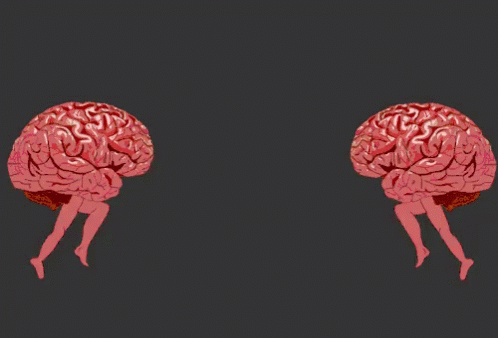Sometimes it’s Better to Take a Deep Breath and Keep Quiet

It’s telling how people who have worked for many years as psychotherapists see their patients’ silence as significant progress in their healing process. Since psychotherapy is built on talking, this may seem contradictory because it’s thought that dialogue is what is powerful.
“Silence is a true friend who never betrays.”
-Confucius-
However, that sudden silence in which the person keeps quiet for an instant and takes a deep breath — many times it marks a crucial moment. It’s in that moment when the person becomes fully aware of their emotions. They realize something they’ve never realized before.
It is also a time when the person is more focused than ever on harmonizing their thoughts and emotions. On top of that, it’s then when you leave the past in the past in order to focus your attention on the authenticity of the present.
Sometimes silence awakens our conscience, and this is an exceptional thing. It can be used not only for managing conversations, but also as a way to get in touch with ourselves. So we can stop “doing” for a second and simply “be.”
Maybe now you see how interesting and nuanced (and useful) the subject of silence is. We invite you to dig deeper into the different sides of silence and the art of keeping quiet.

Mental noise, it surrounds us… and devours us
We live in a culture of noise. And we are not just talking about environmental noise, like the constant bustle of traffic, the perpetual rumble of business, or the characteristic echo of big cities that never sleep.
We’re talking about mental noise, that din of conflicting emotions. A mental cacophony that prevents us from hearing what is so very close to us. It even prevents us from hearing ourselves.
We are under the influence of a type of communication that glorifies loud, never-ending voices. Think about politics. Many times we hear it at work, where the silent ones are instantly labeled as not caring or not having personality.
In fact, essayist and journalist George Michelsen Foy conducted a study to prove that, in Western culture, people who are silent before responding are seen with distrust or suspicion.
Conversations are built on phrases and words. These oftentimes don’t go through an adequate mental or emotional filter. We forget that managing language well is a sign of intelligence. Hence, silence is a necessary step.
Let’s stop, for an second at least, so we can find ourselves. We have to stop so we can really see and feel the other person. There is nothing wrong with taking a deep breath and being silent in the middle of a conversation. Our next word after that pause might be the solution to the problem or the key to repairing the relationship.

Keeping quiet: silence as punishment
George Bernard Shaw used to say, “silence is the most perfect expression of scorn.” Therefore we must be careful how we use it. Watch how you implement it according to the specific context and the people involved.
We’ve suggested that silence is a perfect tool to help manage our emotions. It helps us focus on the here and now and be able to give a better response.
“He who does not know how to be silent, will not know how to speak.”
– Ausonius-
Entrepreneur, investigator, and speaker Luis Castellanos talks about this subject in his book titled “The science of positive language.” Silence is a pause for us. Keeping quiet is necessary, when for example we leave work and are about to arrive home.
Something as simple as taking a deep breath and being in silence for a bit can send pressure and anxiety running. It can keep us from bring negativity into our home.
That said, something to take into consideration is that silence can also destroy relationships. Words heal and build bridges, create roots and strengthen our relationships through positive, empathetic, and understanding language.

Silence is not a punishment, it is a tool
That’s why we must make it clear that silence is not a good way to punish a child. No mistake or bad behavior will be fixed by freezing a child out. Neither will it be fixed by sending him to the solitude of his room.
Most of the time, what this type of punishments does is fuel the child’s anger. Instead, communication is essential. It is essential if we want to change certain behaviors, to understand mistakes made, and to help them grow.
So let’s use silence well. Let’s make it our peaceful refuge where we can get in touch with ourselves, harmonize our emotions, calm our minds, and find within the best answer or the most beautiful word for the moment.
It’s telling how people who have worked for many years as psychotherapists see their patients’ silence as significant progress in their healing process. Since psychotherapy is built on talking, this may seem contradictory because it’s thought that dialogue is what is powerful.
“Silence is a true friend who never betrays.”
-Confucius-
However, that sudden silence in which the person keeps quiet for an instant and takes a deep breath — many times it marks a crucial moment. It’s in that moment when the person becomes fully aware of their emotions. They realize something they’ve never realized before.
It is also a time when the person is more focused than ever on harmonizing their thoughts and emotions. On top of that, it’s then when you leave the past in the past in order to focus your attention on the authenticity of the present.
Sometimes silence awakens our conscience, and this is an exceptional thing. It can be used not only for managing conversations, but also as a way to get in touch with ourselves. So we can stop “doing” for a second and simply “be.”
Maybe now you see how interesting and nuanced (and useful) the subject of silence is. We invite you to dig deeper into the different sides of silence and the art of keeping quiet.

Mental noise, it surrounds us… and devours us
We live in a culture of noise. And we are not just talking about environmental noise, like the constant bustle of traffic, the perpetual rumble of business, or the characteristic echo of big cities that never sleep.
We’re talking about mental noise, that din of conflicting emotions. A mental cacophony that prevents us from hearing what is so very close to us. It even prevents us from hearing ourselves.
We are under the influence of a type of communication that glorifies loud, never-ending voices. Think about politics. Many times we hear it at work, where the silent ones are instantly labeled as not caring or not having personality.
In fact, essayist and journalist George Michelsen Foy conducted a study to prove that, in Western culture, people who are silent before responding are seen with distrust or suspicion.
Conversations are built on phrases and words. These oftentimes don’t go through an adequate mental or emotional filter. We forget that managing language well is a sign of intelligence. Hence, silence is a necessary step.
Let’s stop, for an second at least, so we can find ourselves. We have to stop so we can really see and feel the other person. There is nothing wrong with taking a deep breath and being silent in the middle of a conversation. Our next word after that pause might be the solution to the problem or the key to repairing the relationship.

Keeping quiet: silence as punishment
George Bernard Shaw used to say, “silence is the most perfect expression of scorn.” Therefore we must be careful how we use it. Watch how you implement it according to the specific context and the people involved.
We’ve suggested that silence is a perfect tool to help manage our emotions. It helps us focus on the here and now and be able to give a better response.
“He who does not know how to be silent, will not know how to speak.”
– Ausonius-
Entrepreneur, investigator, and speaker Luis Castellanos talks about this subject in his book titled “The science of positive language.” Silence is a pause for us. Keeping quiet is necessary, when for example we leave work and are about to arrive home.
Something as simple as taking a deep breath and being in silence for a bit can send pressure and anxiety running. It can keep us from bring negativity into our home.
That said, something to take into consideration is that silence can also destroy relationships. Words heal and build bridges, create roots and strengthen our relationships through positive, empathetic, and understanding language.

Silence is not a punishment, it is a tool
That’s why we must make it clear that silence is not a good way to punish a child. No mistake or bad behavior will be fixed by freezing a child out. Neither will it be fixed by sending him to the solitude of his room.
Most of the time, what this type of punishments does is fuel the child’s anger. Instead, communication is essential. It is essential if we want to change certain behaviors, to understand mistakes made, and to help them grow.
So let’s use silence well. Let’s make it our peaceful refuge where we can get in touch with ourselves, harmonize our emotions, calm our minds, and find within the best answer or the most beautiful word for the moment.
This text is provided for informational purposes only and does not replace consultation with a professional. If in doubt, consult your specialist.







